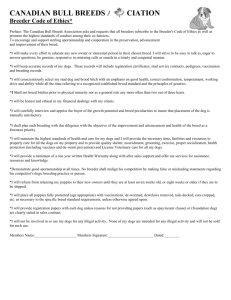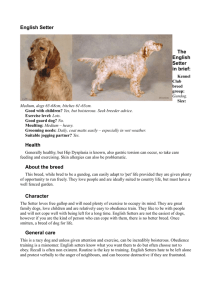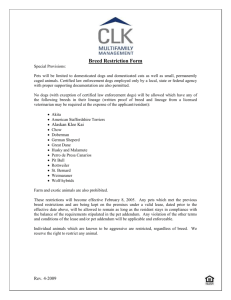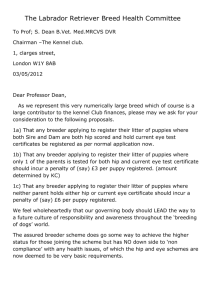What is an ethical breeder
advertisement
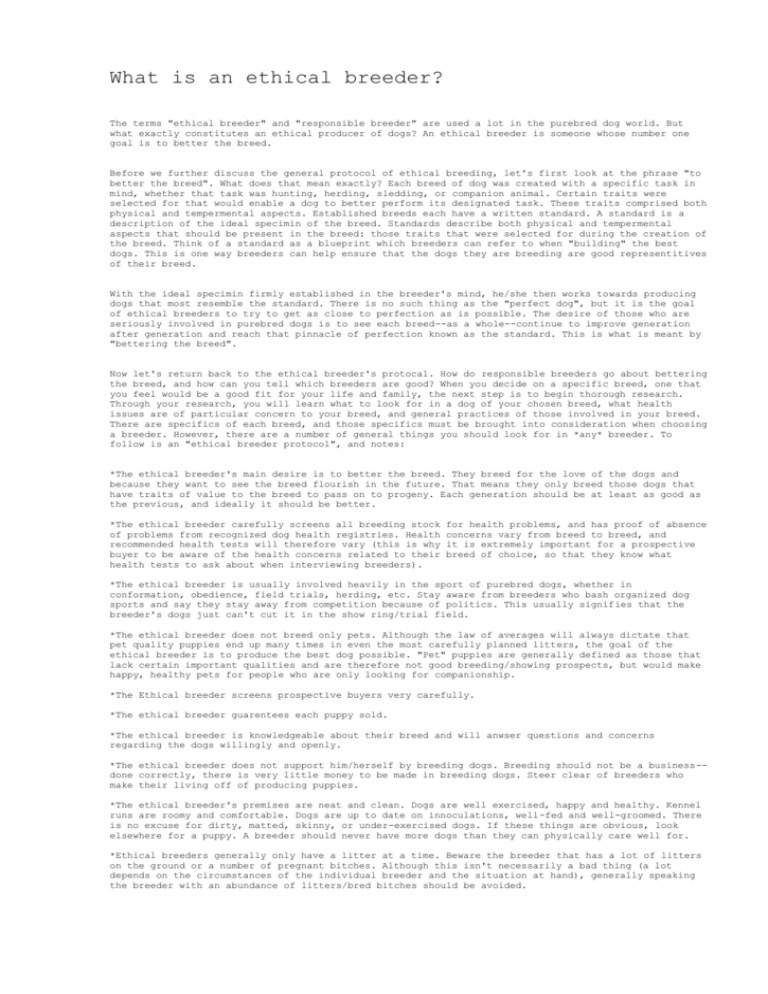
What is an ethical breeder? The terms "ethical breeder" and "responsible breeder" are used a lot in the purebred dog world. But what exactly constitutes an ethical producer of dogs? An ethical breeder is someone whose number one goal is to better the breed. Before we further discuss the general protocol of ethical breeding, let's first look at the phrase "to better the breed". What does that mean exactly? Each breed of dog was created with a specific task in mind, whether that task was hunting, herding, sledding, or companion animal. Certain traits were selected for that would enable a dog to better perform its designated task. These traits comprised both physical and tempermental aspects. Established breeds each have a written standard. A standard is a description of the ideal specimin of the breed. Standards describe both physical and tempermental aspects that should be present in the breed: those traits that were selected for during the creation of the breed. Think of a standard as a blueprint which breeders can refer to when "building" the best dogs. This is one way breeders can help ensure that the dogs they are breeding are good representitives of their breed. With the ideal specimin firmly established in the breeder's mind, he/she then works towards producing dogs that most resemble the standard. There is no such thing as the "perfect dog", but it is the goal of ethical breeders to try to get as close to perfection as is possible. The desire of those who are seriously involved in purebred dogs is to see each breed--as a whole--continue to improve generation after generation and reach that pinnacle of perfection known as the standard. This is what is meant by "bettering the breed". Now let's return back to the ethical breeder's protocal. How do responsible breeders go about bettering the breed, and how can you tell which breeders are good? When you decide on a specific breed, one that you feel would be a good fit for your life and family, the next step is to begin thorough research. Through your research, you will learn what to look for in a dog of your chosen breed, what health issues are of particular concern to your breed, and general practices of those involved in your breed. There are specifics of each breed, and those specifics must be brought into consideration when choosing a breeder. However, there are a number of general things you should look for in *any* breeder. To follow is an "ethical breeder protocol", and notes: *The ethical breeder's main desire is to better the breed. They breed for the love of the dogs and because they want to see the breed flourish in the future. That means they only breed those dogs that have traits of value to the breed to pass on to progeny. Each generation should be at least as good as the previous, and ideally it should be better. *The ethical breeder carefully screens all breeding stock of problems from recognized dog health registries. Health recommended health tests will therefore vary (this is why buyer to be aware of the health concerns related to their health tests to ask about when interviewing breeders). for health problems, and has proof of absence concerns vary from breed to breed, and it is extremely important for a prospective breed of choice, so that they know what *The ethical breeder is usually involved heavily in the sport of purebred dogs, whether in conformation, obedience, field trials, herding, etc. Stay aware from breeders who bash organized dog sports and say they stay away from competition because of politics. This usually signifies that the breeder's dogs just can't cut it in the show ring/trial field. *The ethical breeder does not breed only pets. Although the law of averages will always dictate that pet quality puppies end up many times in even the most carefully planned litters, the goal of the ethical breeder is to produce the best dog possible. "Pet" puppies are generally defined as those that lack certain important qualities and are therefore not good breeding/showing prospects, but would make happy, healthy pets for people who are only looking for companionship. *The Ethical breeder screens prospective buyers very carefully. *The ethical breeder guarentees each puppy sold. *The ethical breeder is knowledgeable about their breed and will anwser questions and concerns regarding the dogs willingly and openly. *The ethical breeder does not support him/herself by breeding dogs. Breeding should not be a business-done correctly, there is very little money to be made in breeding dogs. Steer clear of breeders who make their living off of producing puppies. *The ethical breeder's premises are neat and clean. Dogs are well exercised, happy and healthy. Kennel runs are roomy and comfortable. Dogs are up to date on innoculations, well-fed and well-groomed. There is no excuse for dirty, matted, skinny, or under-exercised dogs. If these things are obvious, look elsewhere for a puppy. A breeder should never have more dogs than they can physically care well for. *Ethical breeders generally only have a litter at a time. Beware the breeder that has a lot of litters on the ground or a number of pregnant bitches. Although this isn't necessarily a bad thing (a lot depends on the circumstances of the individual breeder and the situation at hand), generally speaking the breeder with an abundance of litters/bred bitches should be avoided. The time taken to research your breed and then carefully select a breeder is time well spent. You very well may be saving yourself from a lot of misery in the future.
